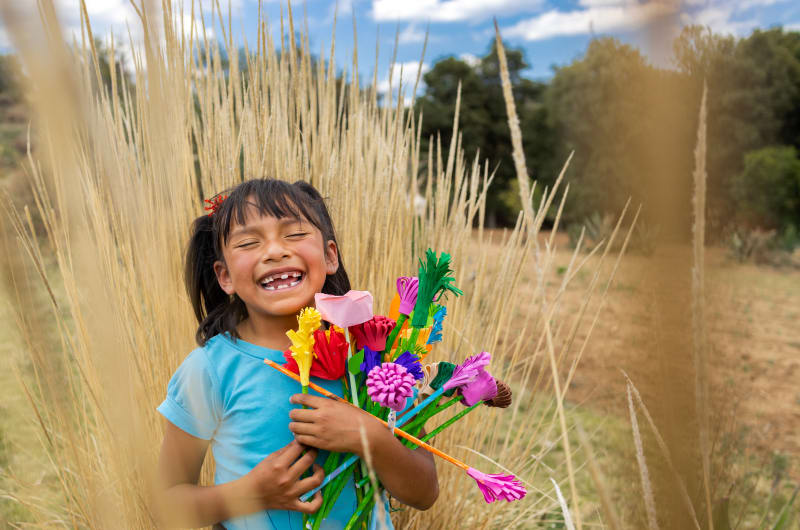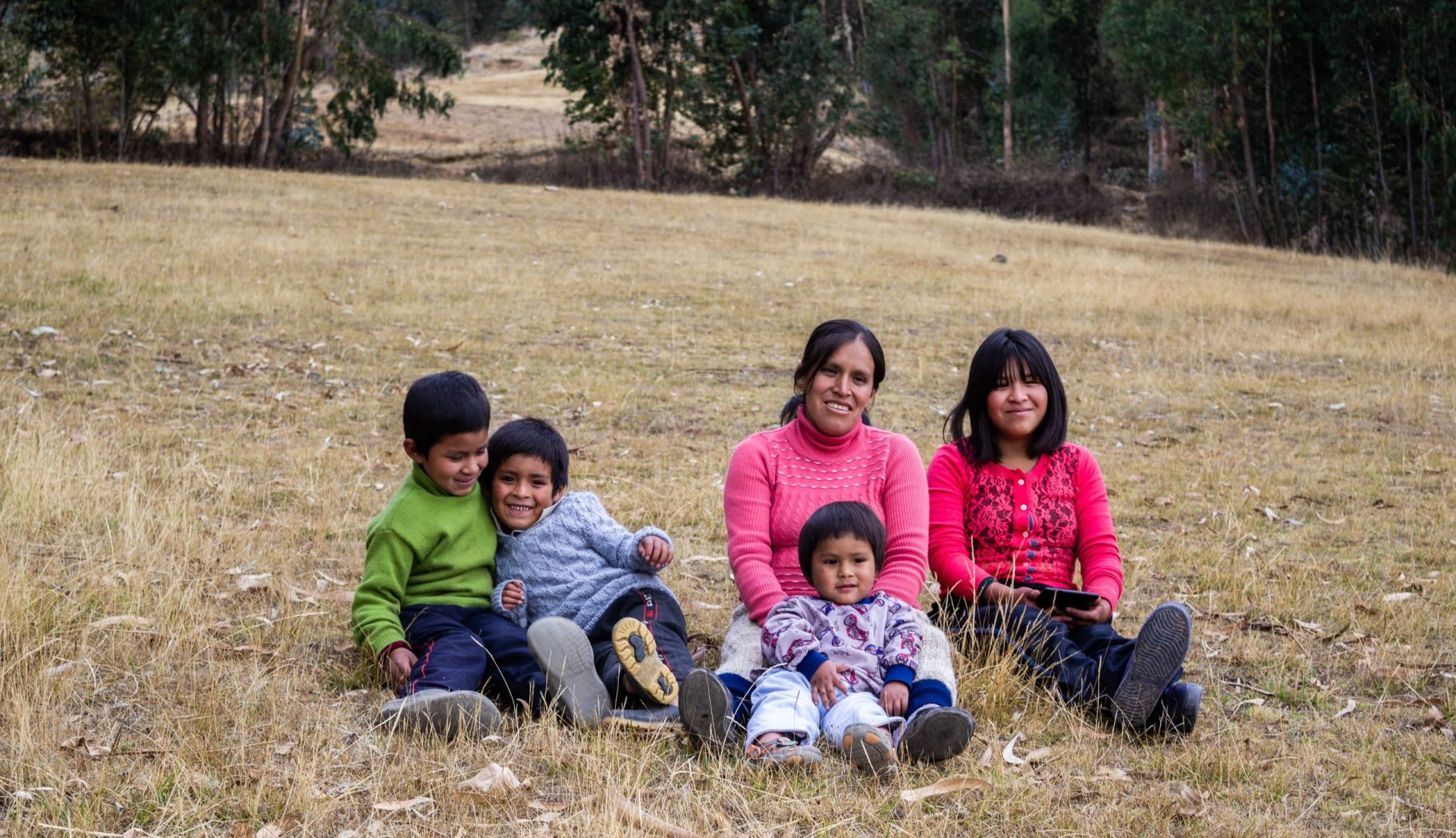
What feelings does a beautiful sunset elicit in you? For so many, seeing the sky ablaze with splashes of colour just before dusk evokes feelings of awe and wonder.
But for eight-year-old Neymar in Peru, sunset is one of the least favourite parts of his day.
Around 5 p.m. each day, single mother Cintia oversees Neymar and his siblings as they do their homework, elbows banging into one another at the small table. After a while, Neymar stands up and walks towards the window. “The sun is going down again, guys,” he says with great disappointment.
Life without power
For this family, sunset means their home is plunged into darkness, as they don’t have access to electricity. Their only sources of light are candles or a mobile phone with limited battery life.
Turning to the neighbours for help worked a while. “They ended up getting annoyed with me for asking them too often to please charge my phone in their houses,” Cintia says.
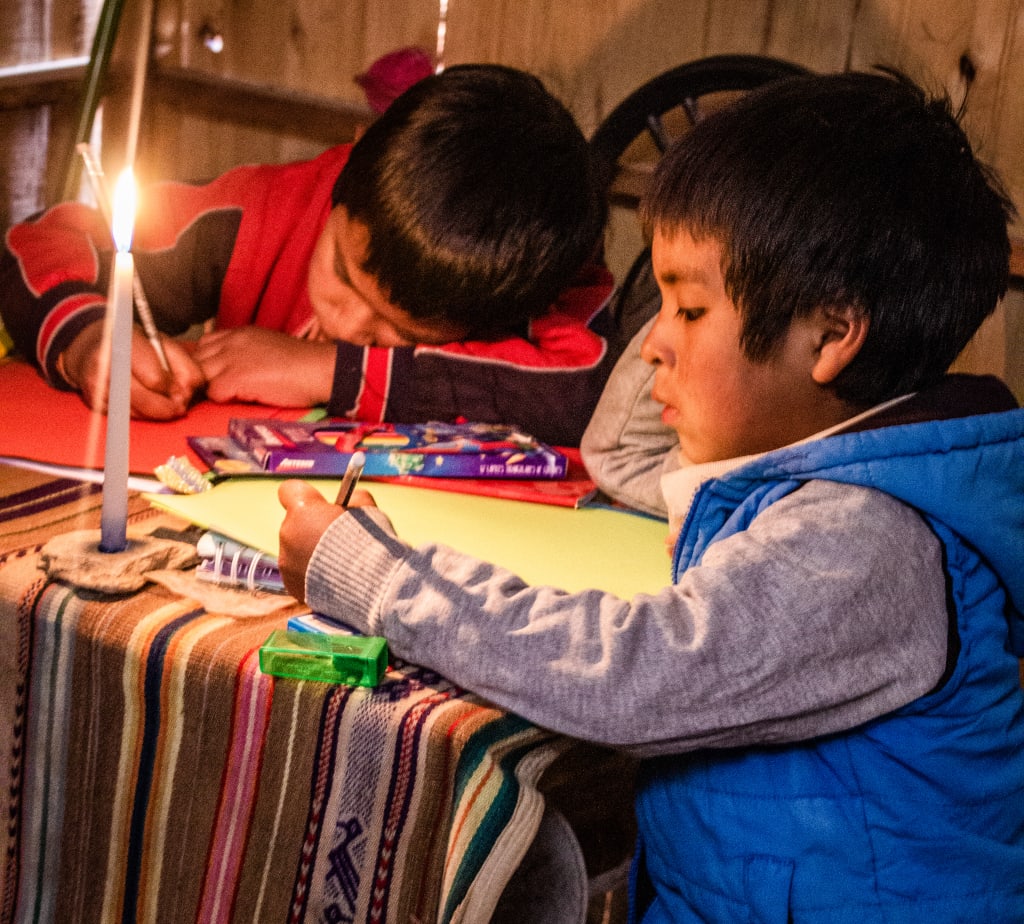
Neymar, 8, and his brother Antony, 6, do homework together by candlelight.
But the risk of bothering the neighbours pales in comparison to the dangers caused by lighting candles. One day, Cintia was coming back home from her occasional work selling chickens, clothes and sweaters in town when her 14-year-old daughter, Rosa, met her with some troubling news.
“The house almost caught on fire. We were only playing and trying to finish our homework, but we fell asleep with the candles on. I was scared,” says Rosa.
This family’s story is not unique. Globally, approximately 1 in 10 people still lack access to electricity (World Bank). The inequality in access between urban and rural areas is significant, with 87 per cent of people who lack access to electricity living in rural areas (United Nations).
Without access to safe and sustainable power, families living in poverty turn to alternatives that can be harmful to health and safety, including burning candles, wood or kerosene.
The gift of solar power
Cintia’s three youngest sons, Neymar, Antony, and Jose Manuel are registered in Compassion’s program at their local church.
During the pandemic, the staff at the Compassion centre helped Cintia’s children by printing their schoolwork and taking it to their house. Still, the kids had to hurry and finish it before it got dark, causing stress and frustration. They needed a more permanent solution.
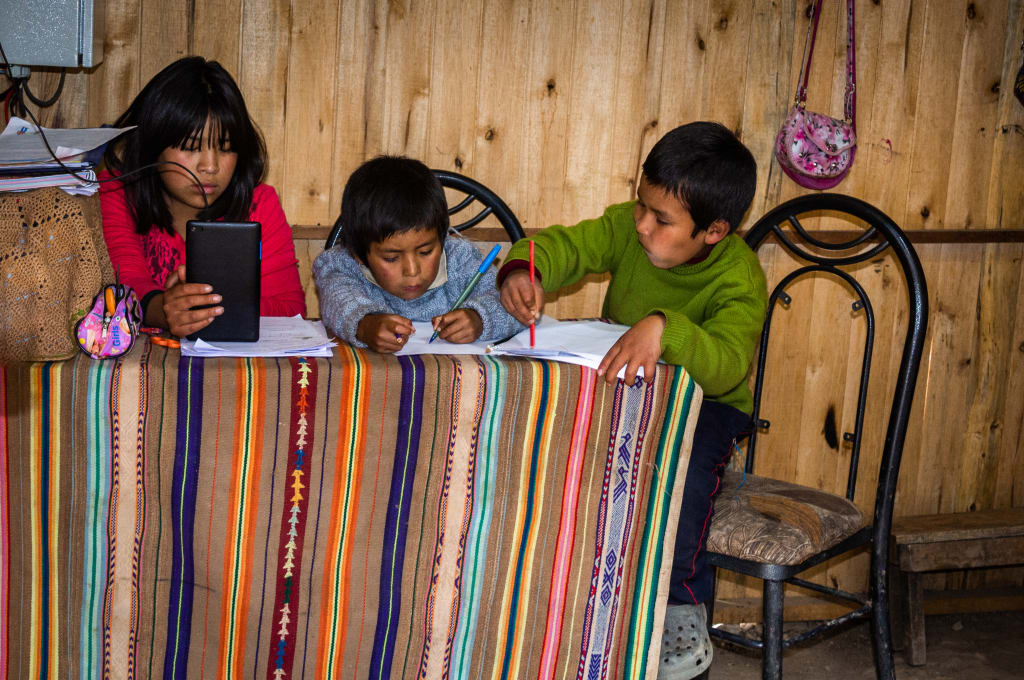
Neymar, Antony and Rosa do homework together.
God indeed came through to answer their fervent prayers and bless the centre’s efforts. “We contacted a Christian engineer who happened to be in town. He was moved by the situation of this family and agreed to give us a good price for his services [installing solar panels],” Tolomea says.
The waiting was over for this family. Thanks to funding from Compassion, the centre was able to install solar panels in Cintia’s house, something she would’ve never dreamed of having. Solar panels work by converting light energy from the sun into electricity. Now, Cintia can have power in her home simply by the sun shining down on the house each day. Gone are the days of dangerous light sources or bothering her neighbours for a bit of electricity.
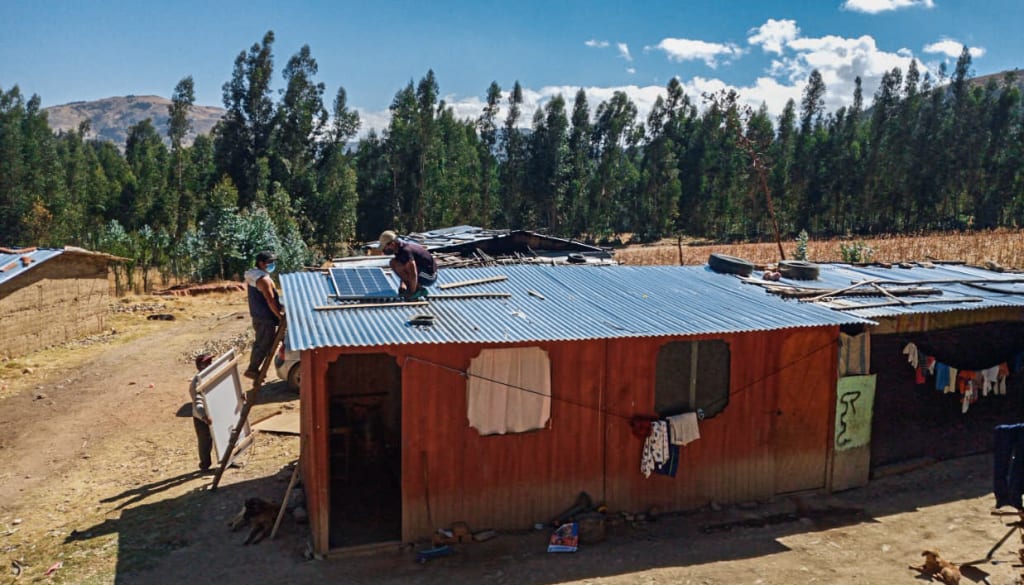
Solar panels are installed at Cintia’s home.
“My kids couldn’t sleep the first night we had power in our house. We were so excited. They jumped up and down on the bed with their stuffed animals until they fell asleep,” says Cintia.
“We don’t like candles. We like these new panels because the house looks more illuminated, and we can do our homework, study, draw and colour more,” Neymar and Antony share.
Sustainable Development Goal 7 is to “ensure access to affordable, reliable, sustainable and modern energy for all”. As the world makes encouraging progress, it’s important to ensure families like Cintia’s aren’t left behind. That’s why Compassion is working to provide solutions like solar power for families living in poverty, resulting in better health and safety as well as educational outcomes for children.
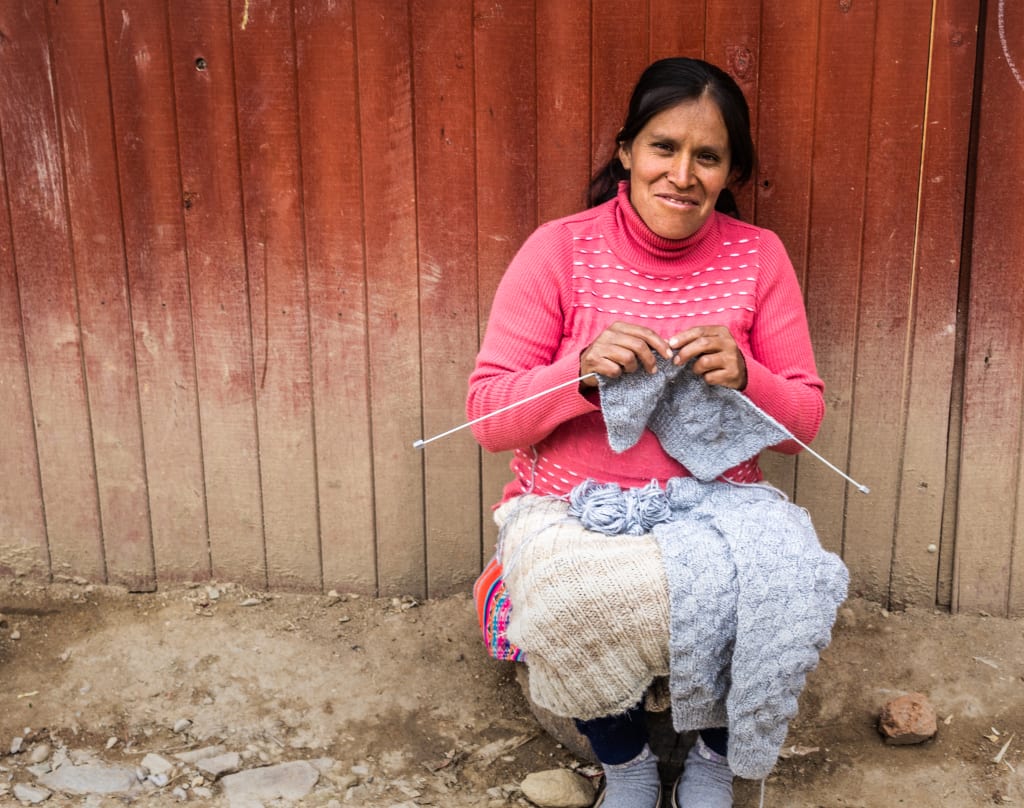
Cintia sits outside her home knitting a sweater.
“I prayed and cried before God for so long. I couldn’t have done this on my own. The centre is a great blessing! First, they helped us have our own house, they keep bringing us food and now we have electricity. I love seeing my children so happy. I’m very grateful,” says Cintia.
Give a family in poverty the gift of Solar Power.
Photos and field reporting by Fernando Sinacay.

